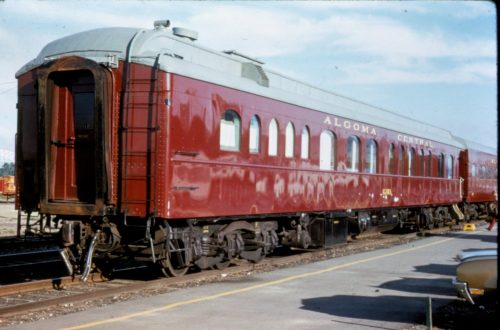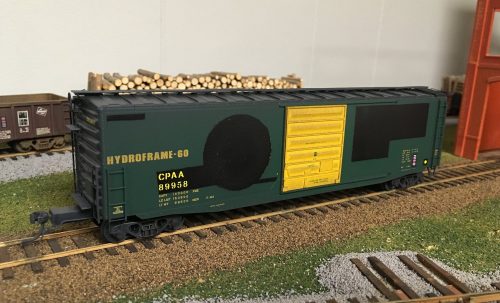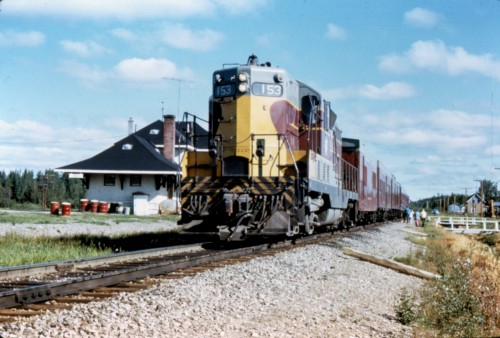Wordless Wednesday #83
Freight Car Friday #73 – CPAA 89958 Model
The prototype for this car was built by Pullman-Standard in late 1962 for their Transport Leasing Company and leased to Spruce Falls Power & Paper Co. of Kapuskasing, Ontario for what appears to have been a ten-year lease. Originally numbered TLCX 1001-1075 and decorated in an attractive dark green paint scheme with large and eye-catching yellow logos for the paper company, the lease expired by the end of 1972 and by early 1973 the cars were then leased to Canadian Pacific and they were renumbered into the CPAA 89910-89980 series and had their original lettering patched out. These lasted on the CP roster until about 1987 at which point they disappeared, disposition unknown.
The model is a Kadee PS-1 boxcar that was factory decorated for Spruce Falls Power & Paper. I gave the car a basic layer of airbrush grime weathering and masked and painted over the original logos much like the prototype did and added the new numbers using MicroScale stencil decals. This should be a unique and eye-catching addition mixed in with other CP and CPAA marked boxcars for paper and pulp service via Franz.
Wordless Wednesday #82
Lumber Wrap Assortment #14
Playing around with logos again today. Some modern versions.
Aspen Planers (blue logo) (Merritt, BC) – ~2007
PDF | XLSX – Prototype
Aspen Planers (redlogo) (Merritt, BC)
PDF | XLSX – Prototype
iLevel Lumber (Weyerhauser) – ~2009
PDF | XLSX – Prototype
Longlac Lumber Inc. (Longlac, ON) – 2015-Present
PDF | XLSX – Prototype
Nakina Lumber Inc. (Nakina, ON) – 2018-Present
PDF | XLSX – Prototype




